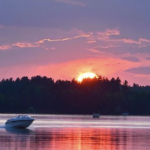STREAM Webinar Series
| Webinar | |
| March 25, 2021 at 10:00 am to May 27, 2021 at 11:00 am () | |
| Online via Zoom | |
| raegan@livinglakescanada.ca |
 The purpose of this four-part webinar series hosted by Living Lakes Canada is to introduce the STREAM (Sequencing The Rivers for Environmental Assessment and Monitoring) project to anyone interested in community-based water monitoring.
The purpose of this four-part webinar series hosted by Living Lakes Canada is to introduce the STREAM (Sequencing The Rivers for Environmental Assessment and Monitoring) project to anyone interested in community-based water monitoring.
Guest presenters will include representatives from University of Guelph, WWF-Canada, Environment and Climate Change Canada, and participating water monitoring groups and First Nations. Recordings of the webinars will be made available on our website.
See the Registration links for Presenters’ Bios.
This webinar series is made possible thanks to support from Alberta Ecotrust.

Webinar 1: Introduction to STREAM – WATCH THE RECORDING
Thursday, March 25 10am-11am PT/11am-12pm MT/1pm-2pm ET
- The goal of this first webinar is to provide participants with information about the STREAM (Sequencing The Rivers for Environmental Assessment and Monitoring) project including how community-based water monitoring (CBWM) is supporting the validation of cutting-edge genomics technology, an intro to DNA metabarcoding 101, and the University of Guelph’s role in the project (Chloe Robinson).
- The webinar will explain how the established Canadian Aquatic Biomonitoring Network (CABIN) has provided the foundation for the STREAM project and Environment and Climate Change Canada’s role in the project (Adam Martens).
- The webinar will also explore how data deficiencies across Canada are being filled by STREAM, WWF-Canada’s role and the Watershed Reports (Catherine Paquette).
- Finally, an overview of engagement that has occurred in the first two years of the project will be provided, what the future plans are, and LLC’s role and how the project is working towards the efforts of the Community-based Water Monitoring National Roundtable goals to elevate CBWM at the national level (Raegan Mallinson).
Webinar 2: Introduction to CABIN – No recording is available due to copyright/government restrictions.
Thursday, April 8 10am-11am PT/11am-12pm MT/1pm-2pm ET
- The goal of this webinar is to contextualize the CABIN (Canadian Aquatic Biomonitoring Network) methods and network developed by Environment and Climate Change Canada (ECCC) as the foundation for STREAM. THIS WEBINAR WILL NOT BE A REPLACEMENT FOR TRAINING but will provide participants with a general overview of biomonitoring, the Reference Condition Approach and the CABIN online tools (Emily McIvor).
- This webinar will also include a general macroinvertebrate talk (why bugs are exciting!) to help support groups to understand more details about benthics (Jen Lento).
Webinar 3: STREAM Users – Featured Case Studies – WATCH THE RECORDING
Thursday, April 29 10am-11am PT/11am-12pm MT/1pm-2pm ET
- This webinar will provide case study examples of participants in the STREAM project that are utilizing the CABIN methods in a local context on the west and east slopes of the Rocky Mountains.
- The Elk River Alliance has been using CABIN since 2012 to inform restoration efforts and identify Elk River tributaries impacted by land-use activities, including mining, logging and residential development. In 2020 ERA trialled STREAM protocols to better understand habitat health. ERA is working to collaborate with industry groups to develop data-sharing agreements and centralize monitoring efforts to better understand and sustainably manage the Elk River watershed (Kaileigh McCallum).
- The Oldman Watershed Council has been a STREAM participant since Year 1 of the project and will share their restoration monitoring efforts in their headwaters on the Eastern slopes of the Canadian Rockies, where they have been restoring stream banks together with partners and volunteers (Sofie Forsstrom).
- The Ghost Watershed Alliance Society (GWAS) will share about how they’re using the STREAM project to fulfill the Ghost Watershed State of the Watershed Report recommendations while addressing concerns due to increased land use practices, specifically sedimentation and how the project is assisting GWAS with identifying priority sites for future restoration efforts (Sharlene Fritz).
Webinar 4: Indigenous-led STREAM projects – WATCH THE RECORDING
Thursday, May 27 10am-11am PT/11am-12pm MT/1pm-2pm ET
- This webinar will feature Indigenous-led, community-based water monitoring programs.
- The Dane nan yḗ dāh (Kaska Land Guardian) program participated in the STREAM pilot project in 2018 and now work in collaboration with the Province to monitor CABIN sites. The project builds upon the existing Dene Nan Yedah environmental monitoring program to include water quality and benthic invertebrate monitoring, ensuring that there is sufficient baseline data to inform future development decisions. At the same time, this collaboration will further the efforts to create a network of Guardians programs (Lisa Shepherd).
- The Blueberry River First Nations took CABIN/STREAM training in 2019 and are continuing to build out their monitoring programs to achieve their goal of reciprocal restoration, to rehabilitate degraded ecosystems while promoting cultural revitalization (Mae Whyte).
- The Environmental Stewardship Initiative (ESI) is a collaboration between the Province and First Nations in northern BC. The goals of ESI are to develop a new collaborative approach to generating high quality, accessible and trusted environmental information. The scope of ESI includes four key areas: 1) ecosystem assessment and monitoring; 2) ecosystem restoration and enhancement; 3) ecosystem research and knowledge exchange; 4) stewardship education and training. Five Nations of ESI, including Witset First Nation, Office of the Wet’suwet’en,, Gitxsan, Gitanyow and Lake Babine Nation have participated in the STREAM project to better understand trends in aquatic biodiversity related to climate change, and impacts of land and water use on aquatic ecosystems over time. This is especially important to these First Nations given their reliance on salmon as a key food source (Dallas Nikal).
If you have any questions about the STREAM Webinar Series or the STREAM program, please contact Living Lakes Canada STREAM Program Manager Raegan Mallinson at: raegan@livinglakescanada.ca





